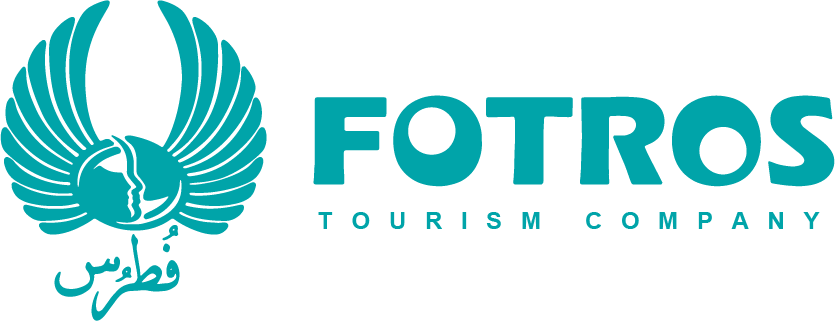
Medical Surgeries
Pelvic Organ prolapse


Pelvic organ prolapse (POP) surgery is a medical procedure performed to treat a condition in which one or more of the pelvic organs, such as the uterus, bladder, rectum, or vaginal vault, descends from their normal position and bulges into the vaginal canal. This can occur when the supporting structures of the pelvic floor weaken or become damaged, often due to factors like childbirth, aging, obesity, or genetic predisposition.
The specific type of pelvic organ prolapse surgery can vary depending on the severity of the condition, the organs involved, and the patient's overall health.
several surgical approaches to address pelvic organ prolapse, including:
Vaginal surgery: Many POP surgeries are performed through the vaginal canal, which can reduce the risk of abdominal incisions. Various techniques may be used to repair and reposition the prolapsed organs, such as the anterior and posterior colporrhaphy, enterocele repair, and sacrospinous ligament suspension.
Abdominal surgery: In some cases, particularly when the prolapse is severe or when the patient needs concurrent surgeries (e.g., hysterectomy), an abdominal approach may be chosen. This can be done through an open abdominal incision or minimally invasive techniques like laparoscopy or robotic-assisted surgery.


Uterine preservation or removal: Depending on the cause and severity of the prolapse, a woman's uterus may be preserved or removed during the surgery. A procedure called a Sacro hysteropexy is performed to lift and support the uterus, while a hysterectomy involves removing the uterus.
Mesh or graft placement: Synthetic mesh or graft materials may be used to reinforce the pelvic floor and provide additional support to the repaired tissues. However, the use of mesh in pelvic organ prolapse surgery has been associated with safety concerns and complications in some cases.
Laparoscopic and robotic-assisted surgery: Minimally invasive techniques like laparoscopy and robotic-assisted surgery are becoming more common for pelvic organ prolapse repair. These methods involve smaller incisions, shorter recovery times, and reduced scarring.


Before Care:
Diagnosis: If you suspect you have POP or are experiencing symptoms like a feeling of fullness or pressure in the pelvis, urinary incontinence, or discomfort during sexual intercourse, it's important to seek a medical diagnosis. Your healthcare provider will typically perform a pelvic exam and may recommend imaging tests.
Lifestyle Modifications: You can take some steps to manage and prevent POP before it worsens. These include maintaining a healthy weight, avoiding heavy lifting, and practicing good bowel habits (avoiding constipation and straining during bowel movements).
Pelvic Floor Exercises: Kegel exercises can help strengthen the pelvic floor muscles, which may alleviate symptoms and prevent further prolapse. A physical therapist can teach you how to perform these exercises correctly.
Pessary Fitting: In some cases, your healthcare provider may recommend a pessary, which is a device that can be inserted into the vagina to support the pelvic organs.
After Care:
Treatment Options: Treatment for POP depends on the severity and impact of the condition. Options can include pelvic floor physical therapy, pessary use, or surgery. Your healthcare provider will help you decide on the most appropriate treatment plan.
Post-Surgery Care: If you undergo surgery, you'll need to follow post-operative instructions carefully. This may include restrictions on physical activity and a gradual return to normal activities. Recovery times can vary, so it's important to communicate with your healthcare provider during this period.
Pessary Maintenance: If you are using a pessary, it's important to follow your healthcare provider's instructions for insertion, removal, and cleaning. Regular follow-up appointments are essential to ensure the pessary is effective and well-maintained.


Surgical Options: In cases of severe POP or when conservative treatments are ineffective, surgical intervention may be necessary. There are different surgical approaches, including vaginal, laparoscopic, and abdominal procedures. Your surgeon will discuss the best option for your specific condition.
Pelvic Floor Rehabilitation: Physical therapy can help you learn how to perform pelvic floor exercises correctly and strengthen the muscles. A physical therapist can also guide you on lifestyle changes to minimize symptoms.
Ongoing Monitoring: Regardless of the treatment chosen, it's important to maintain regular follow-up appointments with your healthcare provider to monitor your progress and address any concerns or new symptoms that may arise.


Why Iran:
Iran, like many countries, has healthcare facilities and medical professionals capable of diagnosing and treating various medical conditions, including Pelvic Organ Prolapse (POP). The suitability of Iran for POP treatment would depend on several factors:
- Medical Expertise
- Advanced Medical Facilities
- Cost-Effective Healthcare
- Privacy and Confidentiality
- Availability of Procedures
- Cultural Sensitivity
- Multilingual Healthcare Providers
Our services include:
![]() our online services include: quotes and consultation
our online services include: quotes and consultation
![]() Planning the highest word-level medical trips and quality hospitals and medical centers according to the patient's request and budget.
Planning the highest word-level medical trips and quality hospitals and medical centers according to the patient's request and budget.
![]() Appointing treatments by the most skilled and experienced doctors.
Appointing treatments by the most skilled and experienced doctors.
![]() Airport pick-up/drop off, check-ups, accompanying translator, book hotel (for patients and their families)
Airport pick-up/drop off, check-ups, accompanying translator, book hotel (for patients and their families)
![]() Pre-hospitalization / post-hospitalization care services
Pre-hospitalization / post-hospitalization care services




All-Inclusive Medical Travel Packages
based on your budget, our team will assist you in choosing the best hotels, doctors, and medical centers. Our packages include:
 Airport Pickup Services
Airport Pickup Services Airport Dropoff services
Airport Dropoff services Hotel
Hotel Ticket
Ticket visa
visa translator
translator Transfer
Transfer SIM Card
SIM Card Sightseeing
Sightseeing
 why Iran
why Iran
Patients may choose to have abdominoplasty (commonly known as a tummy tuck) in Iran for a variety of reasons
Cost, Quality of Care, Privacy and Discretion, Combined Tourism, no Waiting Times
![]()
Fotros is an Iranian health tourism company with a professional team consisting of a support team and word-level doctors in medical and cosmetic surgeries like Neurosurgery, Rhinoplasty, Breast cosmetic surgeries, Liposuction, tummy tuck, etc.










 why Iran
why Iran